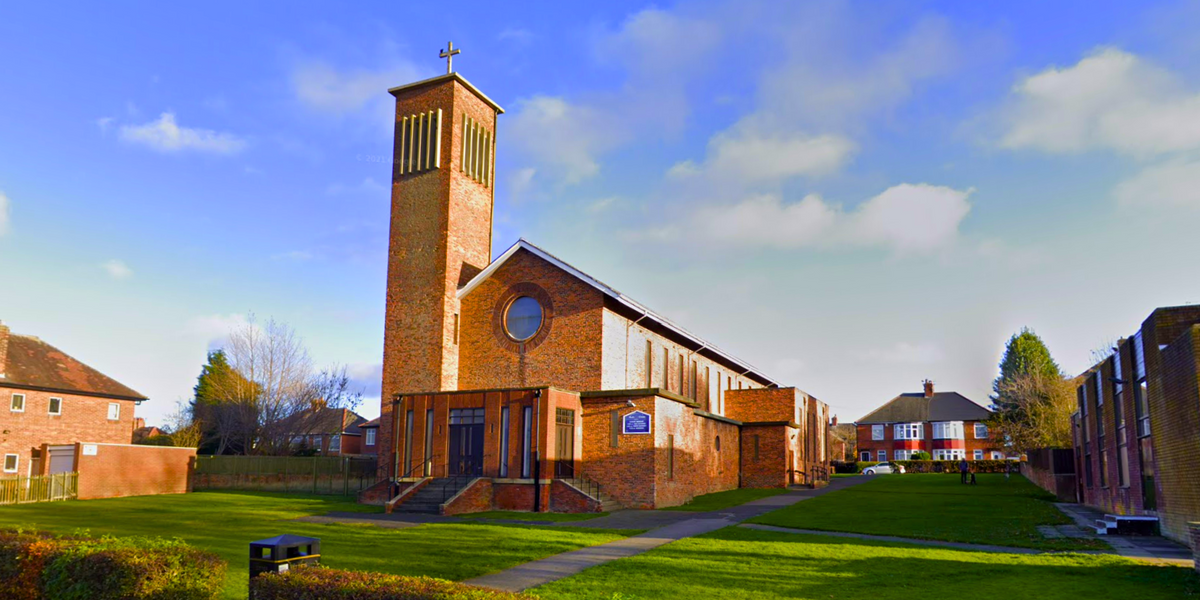The Church of England’s Controversial Reprimand: A Clash Between Tradition and Environmentalism
In a striking episode that has ignited debate within the Church of England, the Consistory Court of the Diocese of Newcastle has reprimanded a small parish in Fenham for opting to install gas heaters instead of a Net Zero-compliant boiler. This incident highlights the tension between the Church’s ambitious environmental goals and the practical realities faced by local congregations.
The Incident at Holy Cross Church
Holy Cross Church, located in the West End of Newcastle, made headlines when its governing committee decided to replace an outdated gas heating system with a new one costing approximately £33,000. The decision was based on the belief that the new system would be more cost-effective and modern. However, the parish’s actions came under scrutiny when they placed a £17,000 deposit on the heaters without first obtaining permission from the diocese.
Judge Simon Wood, the chancellor of the Consistory Court, criticized Holy Cross for failing to consider the Church of England’s commitment to achieving Net Zero carbon emissions by 2030. He argued that the parish should have installed electric heaters, which would have cost between £59,000 and £86,000. Despite acknowledging that the chosen heating system appeared to be the only realistic option, he mandated that Holy Cross enter a "carbon offsetting scheme" to align with the Church’s environmental goals.
The Diocese’s Reaction
The Diocese of Newcastle did not hold back in its criticism of Holy Cross, labeling the situation as "embarrassing." Judge Wood expressed hope that such an incident would not recur, emphasizing the need for parishes to adhere to the Church’s environmental policies. This reprimand has raised questions about the balance between environmental responsibility and the operational realities of local churches.
Voices of Dissent
The controversy has drawn ire from several prominent Anglicans, who argue that the Church’s leadership is out of touch with the challenges faced by local parishes. The Rev Dr. Ian Paul, a member of both the General Synod and the Archbishops’ Council, criticized the ruling as an example of "virtue-signalling" by those disconnected from parish life. He pointed out that the real environmental challenges stem from global issues, such as energy consumption in China, rather than the actions of a single parish striving to maintain its historic building.
Similarly, Rev Daniel French, vicar of Salcombe in Devon, expressed concern that the Church’s rigid adherence to the Net Zero target could alienate dedicated volunteers who work tirelessly to sustain their communities. He warned that if such judgments become commonplace, many may feel disillusioned and abandon their roles in church governance.
The Church’s Stance on Net Zero
In response to the backlash, a spokesperson for the Church of England refrained from commenting directly on the ruling but reiterated the Church’s commitment to its Net Zero program. The spokesperson highlighted that funding and support are available through dioceses to assist parishes in reducing carbon emissions. This initiative aims to help congregations save on energy costs, thereby ensuring their long-term viability.
The Broader Implications
This incident at Holy Cross Church serves as a microcosm of a larger debate within the Church of England regarding environmental responsibility versus practical ministry. As the Church pushes for ambitious climate goals, it must also consider the realities faced by local congregations, many of which operate on tight budgets and struggle to maintain aging buildings.
The clash between the Church’s environmental aspirations and the operational challenges of parish life raises critical questions about governance, accountability, and the future of community worship. As the Church of England navigates this complex landscape, it must find a way to support its parishes in their efforts to be environmentally responsible while also recognizing the unique challenges they face.
Conclusion
The reprimand of Holy Cross Church has sparked a vital conversation about the intersection of faith, community, and environmental stewardship. As the Church of England continues to advocate for Net Zero emissions, it must ensure that its policies are practical and attainable for all parishes. Balancing the ideals of environmentalism with the realities of parish life will be crucial in fostering a sustainable future for the Church and its congregations.
